Homepage Slideshow
About LGSP-LED
A LED Resource Network is group of institutions (government, business, academic institutions and non-government organizations) that are cooperating and sharing local economic development programs, services and resources to benefit local governments and their local economic development teams.
The State of Local Economic Development (LED) in the Philippines points to the need for horizontal and vertical coordination in the delivery of Local Economic Development (LED) services and programs of national government agencies to LGUs.
National government agencies (NGAs) have numerous LED support services, programs and projects on local economic development as part of their mandates. The findings of the State of LED Report point to the need for horizontal and vertical coordination in the delivery of LED services and programs of national government agencies to LGUs.
One of the mechanisms being done to address the need is the creation of an interagency and multi-stakeholder quick response team, that we call the Economic Transformation Team. Depending on what would be more efficient and effective, the DILG regional offices convene the team.
Read more here.
Events
-
gate.io
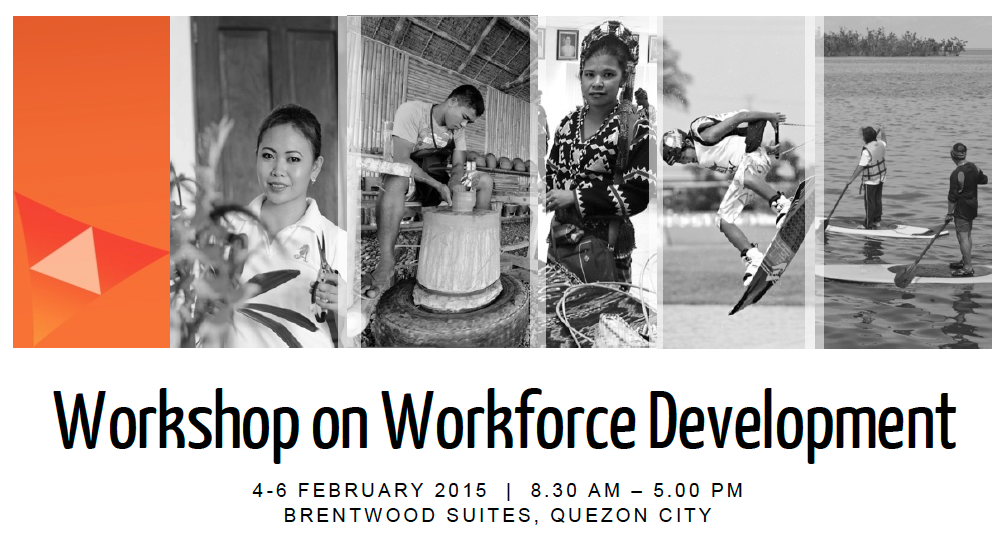
The Department of the Interior and Local Government (DILG) continues to support local governments as front liners of inclusive growth by advocating for LGUs to become more business-friendly and competitive.
Part of this process is ensuring the local supply of workforce meets—in number and competencies—the demand of priority industries and emerging investors, leading ultimately to more jobs for a larger number of Filipinos.
In January 2015, through its Canada-backed program, the Local Governance Support Program for Local Economic Development (LGSP-LED), DILG helped eleven (11) provinces complete nine (9) tourism circuit plans within the priority Tourism Development Areas identified by the national government.
-
Coaching on BFCL for LEIPOs
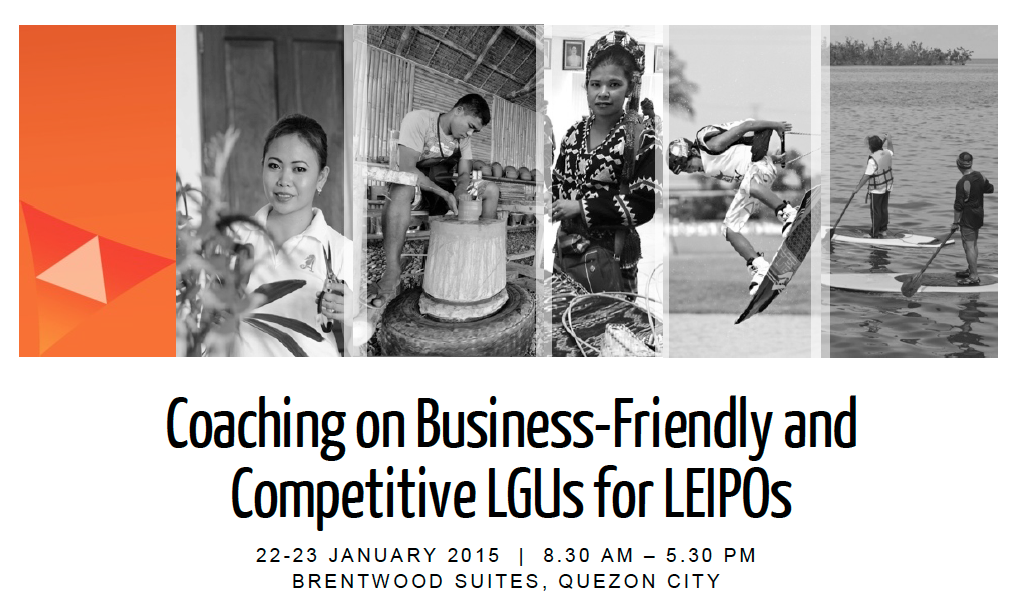
The Department of the Interior and Local Government (DILG) continues to intensify its support for local governments to be front liners of inclusive growth by advocating for LGUs to become more business-friendly and competitive.Through its Canada-backed program, the Local Governance Support Program for Local Economic Development (LGSP-LED), DILG is conducting a coaching session for Local Economic and Investment Promotion Officers (LEIPOs) from 18 provinces: Palawan; Albay; Sorsogon; Aklan; Antique; Iloilo; Negros Occidental; Negros Oriental; Siquijor; Cebu; Davao del Norte; Pangasinan; Guimaras; Bohol; Zamboanga del Norte; Leyte; South Cotabato; and, Sultan Kudarat.
-
Building Competitive LGUs
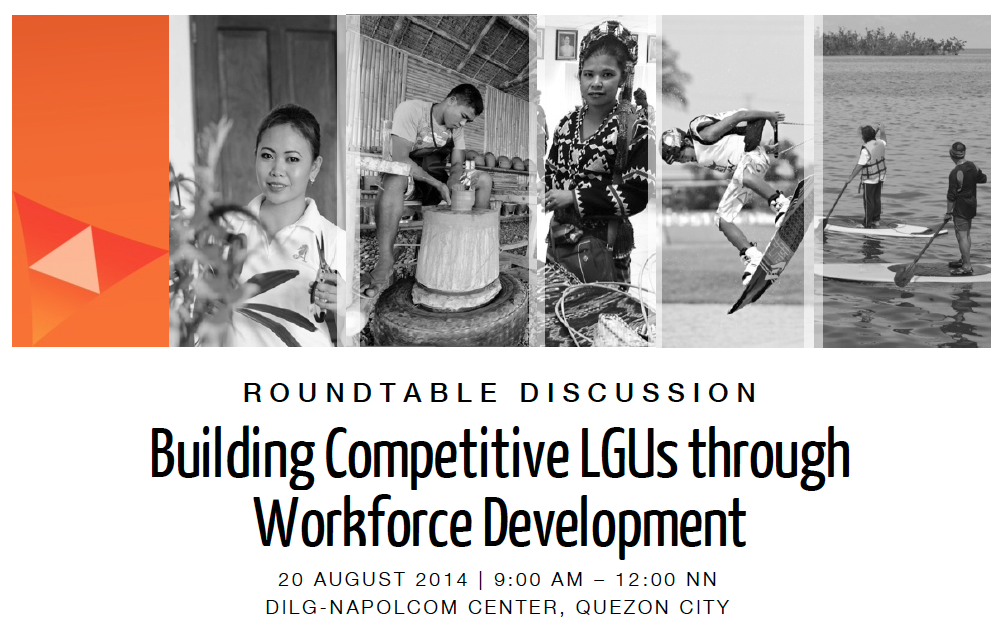
High unemployment rates can be attributed to a mismatch in the worker competencies that institutions produce as compared to the needs of a particular industry. This proves to be true in the experience of the Department of the Interior and Local Government (DILG) through its Local Governance Support Program for Local Economic Development (LGSP-LED).
Success Stories
-
PAMANSLOT
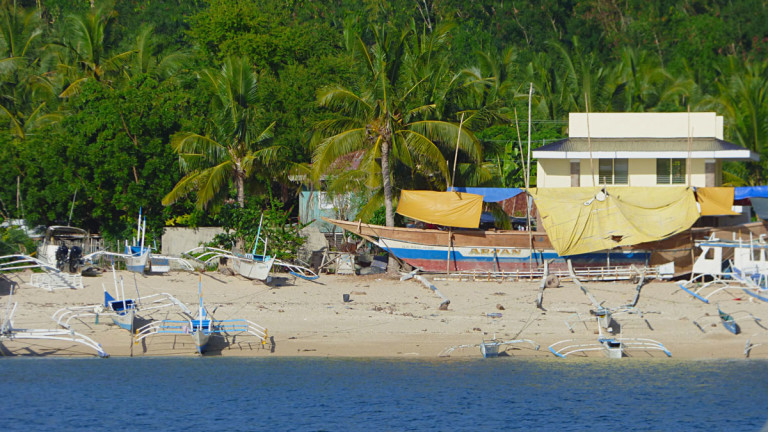
Isla Gigantes is the farthest island off the northern coast of the province of Iloilo, Philippines. It is one of the 33 islands in the islands in the Municipality of Carles where 97% of barangays (villages) are coastal. There are about a thousand households settled here with fishing as their primary source of livelihood. Out of the 33 islands in the municipality, Isla Gigantes might be the one most visited by tourists.
This was not always the case. Isla Gigantes only gained popularity after it suffered through supertyphoon Yolanda in November 2013.
“Dinala ako ng hangin papunta sa dagat,” recalls Elmar Tuma-on, a 42-year-old local resident. I was swept away, towards the shore.
-
Coop helps Boholano farmers keep up with organic rice demands
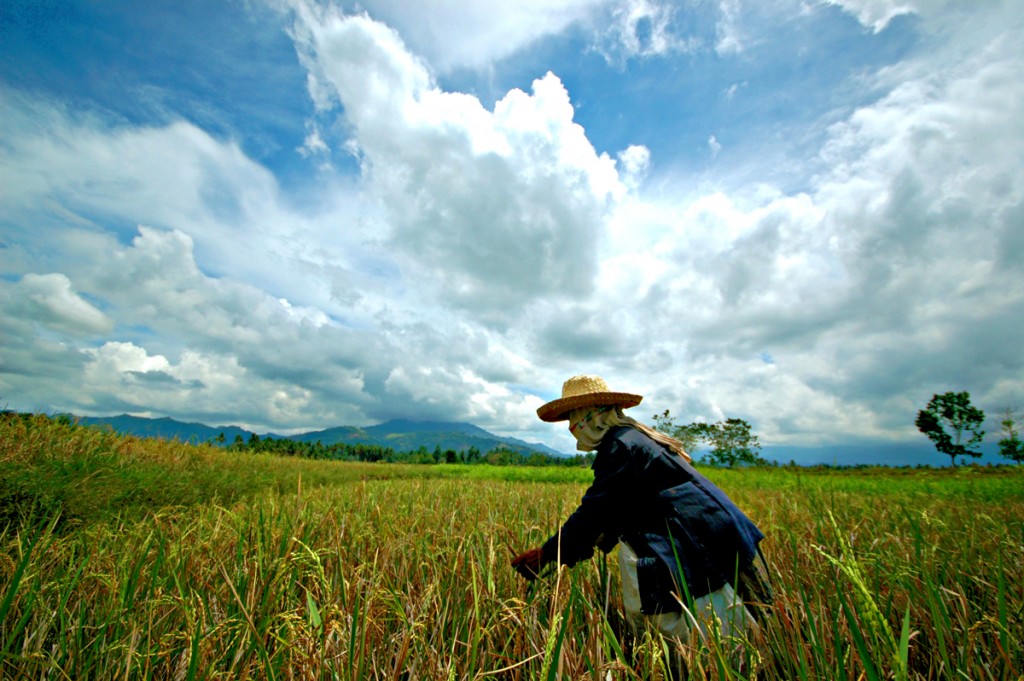
Rice Harvest in the Philippines
Agriculture is the main livelihood in the Province of Bohol – an island in the heart of the Philippines.
During the Green Revolution in the 1960s, government support to increase agricultural production in the Philippines was plentiful and forceful. With this support and the introduction of new varieties and technology, farmers were able to double agricultural yields. It was in this context that the Philippines became a rice-exporting country.
-
Hablon Goes Global

SOLAR LIVING, a Canadian company that promotes solar energy for both residential and commercial use, opened its showroom at SM City Iloilo on December 18, 2015.
Owned by Malaysian-Canadian businessman Alan Yong, Solar Living is the first to respond to a 2014 business matching activity organized by the Local Governance Support Program for Local Economic Development (LGSP-LED).






